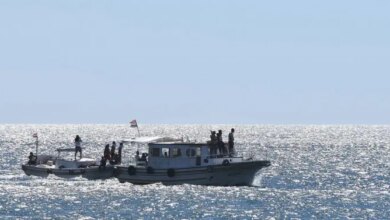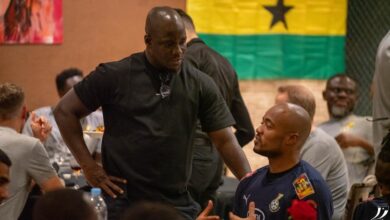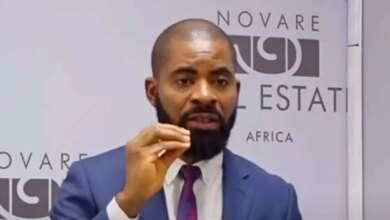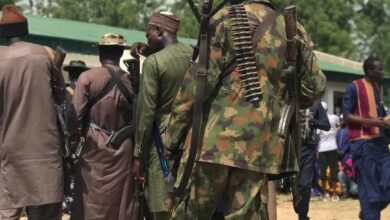The West won’t pay, but Africa must wake Up
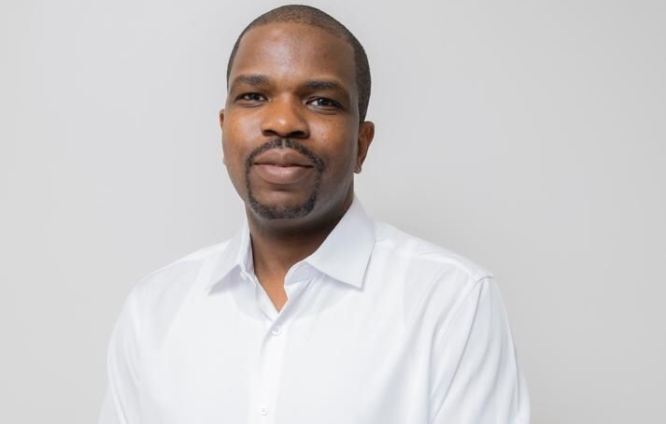

In my first year at the University of Cape Coast, I remember attending a symposium organised by the National Union of Ghana Students, led by Theophilus Tawiah, Esq., who was then president of the local chapter. I was part of the health committee. The topic was slavery, its atrocities, and the question of reparations. The speakers came from the public affairs office of the American Embassy. Even then, the issue of reparations was in the limelight, debated passionately on campuses and in student unions. I recall how deeply we felt that the world still owed Africa an apology, if not compensation, for centuries of dehumanisation.
Last week, that memory returned vividly when I came across a video circulating on social media. In it, a member of the British Parliament, Robert Jenrick of the Conservative Party, declared that former British colonies should be grateful for the legacy Britain left behind, implying that reparations were not appropriate. Of all the comments I have heard over the years from Europeans and Americans unwilling to pay reparations to Africa, to the West Indies, to Indians, and to people of colour everywhere, this one infuriated me the most. It was not merely arrogance; it was historical blindness dressed in diplomatic politeness.
It is therefore right that Ghana’s president has appointed a representative to lead the call for reparations from our former colonial masters. But as we press that demand, we must also look inward and correct the fundamental wrongs that keep us chained to the same systems that enslaved our ancestors. We must build policies and institutions strong enough to defeat neo-colonialism, which Dr Kwame Nkrumah warned was the last stage of imperialism. Today, our greatest enemy is not physical slavery, but mental and structural enslavement, the subtle domination that comes with debt, dependency, and imitation.
The same colonial powers that once justified slavery now control the minds and economies of African nations. They have refined their tools; they control not only how we trade, but how we think; not only our resources, but our standards of success. They plant discord among us, divide us by language, tribe, and region, and raise one African against another to destroy the very foundations our own forefathers built. They no longer need whips; they have pens, policies, and propaganda.
Interestingly, at the twilight of their lives, some of these foreign agents confess in their memoirs. Dean Rusk, the former U.S. Secretary of State, in his book As I Saw It, admitted that the CIA plotted against Nkrumah, refused to fund the Akosombo Dam, and eventually supported his overthrow. That is how the West treats those who dare to dream of an independent Africa. The same pattern continues today through international institutions, trade agreements, and global narratives that keep Africa in a cycle of dependency. The West will never lead a call for reparations because that would mean admitting guilt, confronting their greed, and compensating those they still see as inferiors. Their culture of self-righteousness and egoism blinds them to justice. Their history has always been one of exploitation disguised as civilization.
Chief Albert Luthuli of South Africa once said that Africans see the long chain of family as divine. We believe that I am because you are. Our philosophy is communal, egalitarian, and humane. The West is individualistic, self-centred, and materialistic. They cannot understand that our strength lies in togetherness, not conquest. That is why their refusal to pay reparations should not surprise us. Their moral compass was never shaped by justice but by dominance. Even the God they imported to Africa was used as a weapon to justify slavery. They enslaved bodies in the name of saving souls.
Yet while we condemn their hypocrisy, we must confront our own imitation of it. We wear their clothes, speak their language, copy their laws, and worship their ideals as if nothing in our culture was ever good enough. The tragedy is that the West no longer needs to colonise us by force because we have willingly surrendered our reflection in the mirror of our own identity. Why must a Ghanaian president, judge, or parliamentarian wear a suit and tie under the blazing African sun? Why must our lawyers and judges still wear grotesque wigs that belong to another era and another people? These wigs are not symbols of wisdom; they are remnants of humiliation. Why do we name our regions Eastern, Western, Volta, and Upper East as though we have no heritage worth naming ourselves after? The river our ancestors called Amu was renamed Volta by colonial explorers, and we have kept it so for over a century. The Congo too, was “discovered” and renamed as though the millions who lived along it for centuries were blind to its existence. I remember sitting in a geography class at Bishop Herman College learning that it was the Portuguese who discovered the Volta River and the Congo Basin, and it made no sense to me even then. How can you discover a river that has always flowed through the lives of those who fetched, bathed, fished, and worshipped from it? Those lessons shaped my early awareness of how the colonial mind rewrote the world to make the African invisible in his own land.
No nation has developed by denying its roots. None has prospered by feeding on the leftovers of another’s harvest. In his famous Harvard address, the American philosopher Ralph Waldo Emerson urged his countrymen to detach themselves from Britain’s shadow. He asked, For how long shall we continue to feed on the remains of foreign harvests? America listened and grew. Look around the world. France speaks French, Germany speaks German, Japan speaks Japanese, and China speaks Mandarin. Only Africa still believes fluency in another’s tongue is a badge of intelligence. In East Africa, Swahili unites schools and nations. In Ghana, we still worship English and judge intellect by accent. Our linguists have failed to give us a national language policy that reflects our soul.
And what about our education? I remember studying in secondary school about the Ruhr Valley of Germany, the Appalachian Mountains of America, and the Detroit automobile industry. We memorised wadis and glaciers we would never see while knowing nothing about the Volta Basin, the cocoa industry, or the sacred groves of Ghana. Why must a Ghanaian child know the pilgrimage routes of New England but not the ancestral paths of Akwamu or Wusuta? Our curriculum is a colonial script that teaches us to admire others and doubt ourselves. It must change urgently.
Language is the first battlefield of liberation. To speak another man’s language is to think in his logic and dream in his symbols. The coloniser knew this well. That is why he taught us to despise our mother tongues. But we can reclaim them. We must develop Ewe, Twi, Ga, Dagbani, and Nzema as languages of education, technology, and governance. Until we do so, we will continue to think of ourselves through borrowed eyes. The same must happen in our culture and family life. There is no sense in naming an African child after a Greek goddess or a Hebrew saint when our ancestors had names that carried power, story, and spirit. Our marriages, once communal and sacred, have been replaced with white weddings that drain families of money and meaning. What we call modernization is often disguised mimicry.
The time has come to restore our authentic African confidence. The government can lead by example, changing colonial names, reforming the national dress code, and revising the education curriculum. Decolonisation is not an abstract theory; it is an act of self-respect. When newly inducted Ghanaian lawyers beam with pride in foreign wigs and robes, believing they have inherited dignity, they reveal how deep the coloniser still lives in our imagination. The Ghana Bar Association and the Presidency must act. Let us design judicial attire that reflects our climate and culture. Let our courts look and feel like Ghana, not like London.
Our ancestors had courts too, under trees and in courtyards, guided by elders who understood both justice and mercy. They may not have had Latin phrases or gavel sounds, but they had conscience. We can build from that heritage, not reject it. The West will not pay for our pain, but we can stop paying them with our souls. The IMF and World Bank do not give loans to free us; they lend to bind us. Their money is not for our liberation but for our limitation. If they believed in justice, they would have joined the African call for reparations long ago. Reparations are not only about money. They are about dignity, restoration, and recognition of wrongs. But true reparations begin when a people repair themselves, when they reject inferiority, reclaim their history, and restore their pride.
We have work to do. We must rename our rivers and cities, rethink our education, and rewrite our story. We must plant African pride in the hearts of our children. We must learn to trust the soil beneath our feet and the wisdom of our ancestors. Nkrumah tried to build this consciousness. He brought George Padmore and W. E. B. Du Bois to Ghana to lay the foundations for the Encyclopedia Africana. He believed Africa could rise again if she rediscovered her soul. But we abandoned that project. Today, our leaders speak more English than vision, more diplomacy than truth.
I used to read the columns of K. B. and S. K. B. Asante and the writings of Sydney Abugri, who taught me much about Nkrumah’s years. Those men wrote with conviction, with the fire of belief that words could restore a people’s pride. That is the spirit we must recover, the courage to think African, dress African, speak African, and live African. Let us begin the decolonisation of the mind. Let us look in the mirror and see our own faces again. The West will not hand us dignity; we must claim it. The chains that bind us now are invisible, but they can be broken by consciousness. True freedom is not given. It is reclaimed.
Manaseh Mawufemor Mintah, PhD, is an environmental and legal scholar and writer who studied African Studies at the University of Cape Coast. His writings focus on decolonisation, African leadership, and environmental justice.
DISCLAIMER: The Views, Comments, Opinions, Contributions and Statements made by Readers and Contributors on this platform do not necessarily represent the views or policy of Multimedia Group Limited.
DISCLAIMER: The Views, Comments, Opinions, Contributions and Statements made by Readers and Contributors on this platform do not necessarily represent the views or policy of Multimedia Group Limited.
Source link


